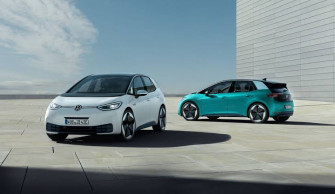Sub-Saharan Africa
Global air pollution from landscape fires causes millions of deaths: Study
An Australian-led international study has revealed that over 1.5 million deaths worldwide each year are linked to air pollution stemming from landscape fires, underscoring the grave health risks associated with such environmental events.
The research, conducted by Monash University in Melbourne and published on Thursday, found that an average of 1.53 million deaths annually between 2000 and 2019 were attributable to the harmful air pollution caused by these fires.
A striking 90 per cent of the fatalities occurred in low and middle-income nations, with sub-Saharan Africa, Southeast Asia, South Asia and East Asia bearing the brunt of the impact.
Health Risks and Regional Disparities
Of the annual deaths, 450,000 were linked to cardiovascular disease, while 220,000 were due to respiratory illnesses. Fine particulate matter from landscape fires accounted for 77.6 per cent of the fatalities, while surface ozone contributed the remaining 22.4 per cent.
The research highlighted stark regional inequalities, with sub-Saharan Africa experiencing the highest rates of mortality linked to landscape fire-sourced air pollution.
Read:New Delhi shuts schools, bans construction as air pollution reaches worst levels
"As wildfires become increasingly frequent and severe due to a warming climate, urgent action is needed to address the substantial health impacts and environmental injustices tied to climate-related mortality," the authors stated.
Call for Global Support
The study advocates for high-income nations to provide financial and technological assistance to help vulnerable developing countries mitigate the health impacts of air pollution from landscape fires. It also stresses the need to address socioeconomic disparities in mortality rates.
By providing targeted support, the authors argue, wealthier nations can help reduce the disproportionate burden faced by poorer regions, ultimately contributing to a more equitable approach to combating climate-related health crises.
This comprehensive study involved contributions from researchers across the globe, making it a significant step towards understanding and addressing the human cost of air pollution caused by landscape fires.
Source: With inputs from agencies
1 year ago
Volkswagen introduces electric car in Sub-Saharan Africa for 1st time
Kigali, Oct. 30 (Xinhua/UNB) -- German automaker Volkswagen (VW) on Tuesday launched a pilot project of its electric car e-Golf in partnership with German technology giant Siemens in Kigali, capital city of Rwanda, which makes Rwanda the first country in Sub-Saharan Africa where VW introduces an electric car.
VW had in June 2018 launched a car assembling plant in Rwanda together with integrated mobility solutions including application-based car-sharing services. The Rwandan plant has an annual capacity of assembling up to 5,000 cars including Polo, Passat and Teramont, and can create up to 1,000 jobs per year.
The success of VW's pioneering mobility solutions business in Rwanda has shown that the central African country has the potential to leapfrog the internal combustion engines into electric cars, said Thomas Schaefer, Chairman and Managing Director of VW Group South Africa at an official launch of the project.
Rwanda becomes the first African country where Volkswagen is testing electric cars, Schaefer said.
Fully charged engine of the e-golf has a capacity of cruising a distance of 230 kilometers in ideal conditions. However, the distance is subject to conditions such as altitude, terrain and gradient among other factors, according to VW.
Four e-Golf and one charging station will be introduced in Rwanda after the launch, while the number will increase to 20 and 15 respectively in the next few months, it said.
During the pilot project the electric vehicles will operate under VW's mobility solutions initiative which includes car sharing and rentals among others, said Michaella Rugwizangoga, CEO of Volkswagen Mobility Solutions Rwanda, the subsidiary of VW South Africa in Rwanda.
Rwandan government is confident that the introduction of environmentally friendly transport services such as electric cars will accelerate the reduction of air pollution levels as the central African country is becoming increasingly aware that protecting the environment is a top priority, said Rwandan Prime Minister Edourd Ngirente.
E-mobility presents great opportunities to substitute expensive fuel imports with electricity generated in the country, he said.
In 2018, fuel products were the largest single import product category into Rwanda, accounting for 12 percent of all imported goods, according to him.
6 years ago



